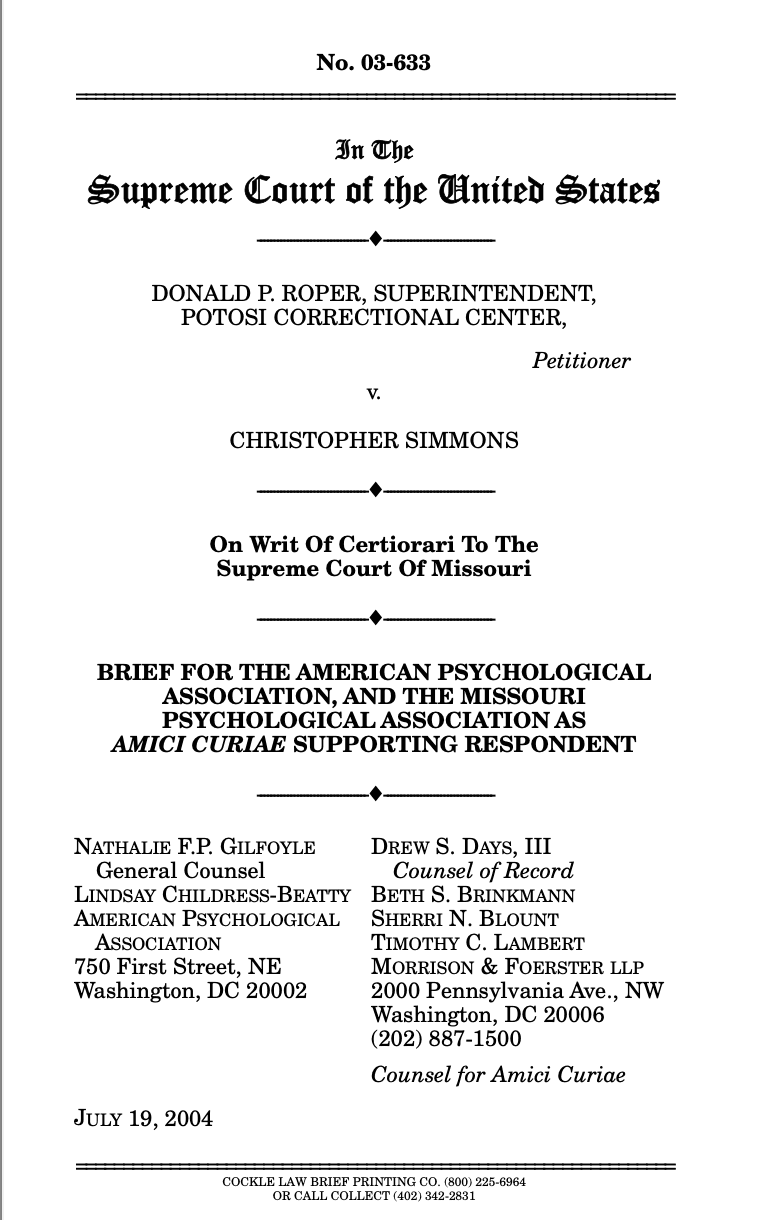
Summary of Argument
A. At ages 16 and 17, adolescents, as a group, are not yet mature in ways that affect their decision-making. Behavioral studies show that late adolescents are less likely to consider alternative courses of action, understand the perspective of others, and restrain impulses. Delin- quent, even criminal, behavior is characteristic of many adolescents, often peaking around age 18. Heightened risk-taking is also common. During the same period, the brain has not reached adult maturity, particularly in the frontal lobes, which control executive functions of the brain related to decision-making.
Adolescent risk-taking often represents a tentative expression of adolescent identity and not an enduring mark of behavior arising from a fully formed personality. Most delinquent adolescents do not engage in violent illegal conduct through adulthood.
The unformed nature of adolescent character makes execution of 16- and 17-year-olds fall short of the purposes this Court has articulated for capital punishment. Developmentally immature decision-making, paralleled by immature neurological development, diminishes an adolescent’s blameworthiness. With regard to deterrence, adolescents often lack an adult ability to control impulses and anticipate the consequences of their actions. Studies call into question the effect on juvenile recidivism of harsher criminal sanctions.
B. The mitigating effect of adolescence cannot be reliably assessed in individualized capital sentencing. Adolescents are “moving targets” for assessment of charac- ter and future dangerousness, two important considera- tions in the penalty phase of capital trials. As one example, psychologists have been unable to identify chronic psychopathy, also known as sociopathy, among adolescents. Assessments of such severe antisocial behav- iors during adolescence have yet to be shown to remain stable as individuals grow into adulthood. Consequently, attempts to predict at capital sentencing an adolescent offender’s character formation and dangerousness in adulthood are inherently prone to error and create an obvious risk of wrongful execution.
The transitory nature of adolescence also means that an adolescent defendant is much more likely to change in relevant respects between the time of the offense and the time of assessment by courts and experts. At sentencing, an offender may behave and look more like an adult than he or she did at the time the crime was committed. Im- pressions of the maturity and responsibility of adolescent offenders may also be impermissibly influenced by uncon- scious racism.
C. Immaturity of judgment, which is generally characteristic of adolescent development, will affect a defendant’s participation in earlier stages of the criminal process. A recent study found adolescents overrepresented among defendants who had falsely confessed to crimes. Other research that examined psychosocial influences on legal decisions found that developmental immaturity may adversely affect an adolescent’s decisions, attitudes, and behavior in the role of defendant. Individualized capital sentencing cannot correct for the heightened risk of error produced by less mature adolescent decision-making at earlier stages of the criminal process.